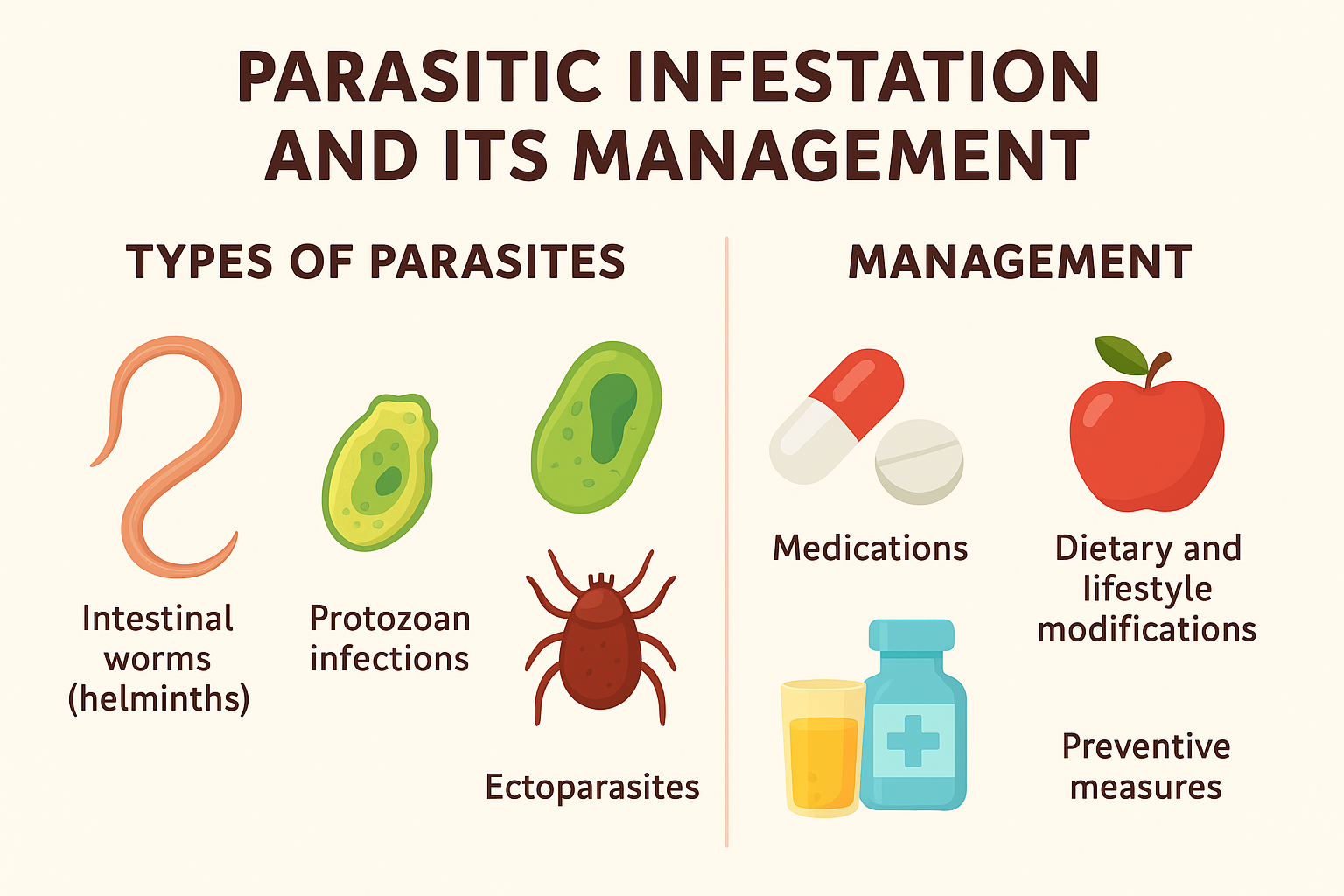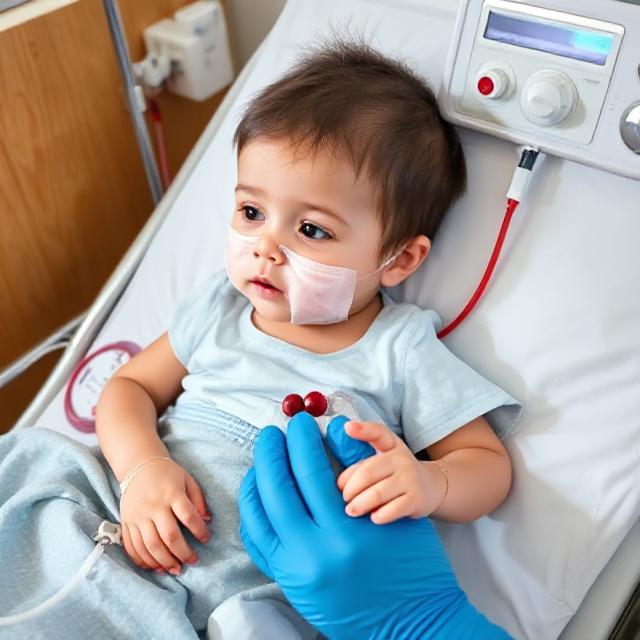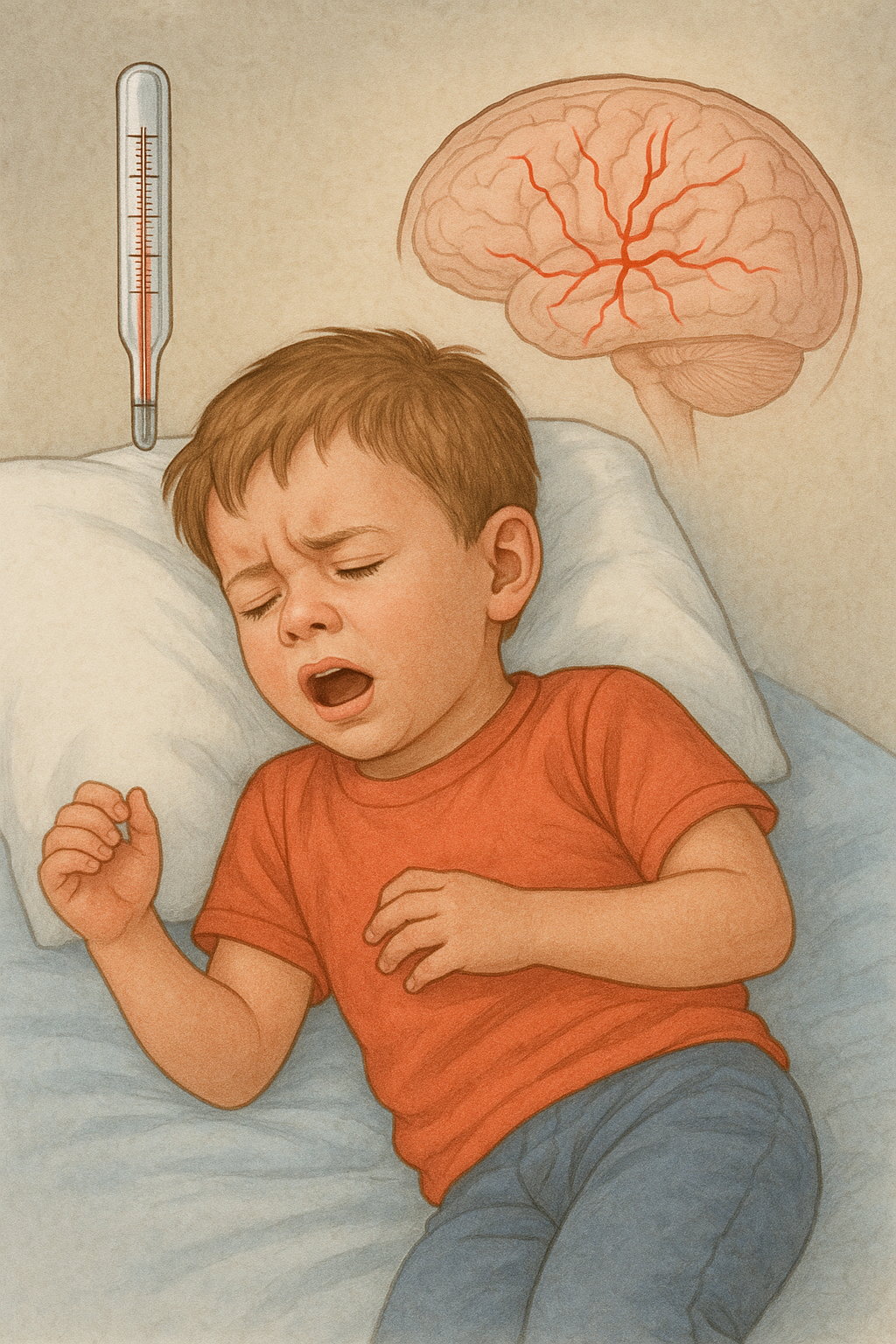Parasitic infestations are infections caused by organisms that live on or inside the human body and feed on the host. Parasites can affect the digestive system, skin, blood, and other organs, leading to various health problems. They are more common in regions with poor sanitation, contaminated water, and improper hygiene. Early diagnosis and proper treatment are essential for effective management.
What is a Parasitic Infestation?
A parasitic infestation occurs when parasites such as worms, protozoa, or ectoparasites (like lice and mites) invade the body. These organisms can survive at the expense of the host and cause significant health issues if left untreated.
Types of Parasitic Infestations
- Intestinal Worms (Helminths): Roundworms, tapeworms, hookworms, and whipworms that live in the intestines.
- Protozoan Infections: Single-celled organisms like Giardia lamblia, Entamoeba histolytica, and Plasmodium (causing malaria).
- Ectoparasites: Lice, mites, and ticks that infest skin and hair.
Causes of Parasitic Infestation
- Consuming contaminated food or water
- Poor sanitation and hygiene practices
- Walking barefoot on contaminated soil
- Insect bites (mosquitoes, ticks)
- Close contact with infected individuals or animals
Symptoms of Parasitic Infestation
Symptoms vary depending on the type of parasite but may include:
- Abdominal pain and bloating
- Diarrhea or constipation
- Nausea and vomiting
- Loss of appetite and weight loss
- Itching around the anus (common in pinworm infection)
- Skin rashes or sores
- Fatigue and anemia (in severe infestations)
Diagnosis of Parasitic Infestation
Doctors may recommend:
- Stool examination for intestinal parasites
- Blood tests for malaria and other protozoan infections
- Skin scrapings for ectoparasites
- Imaging tests in severe cases to detect organ involvement
Management and Treatment of Parasitic Infestation
1. Medications
- Antiparasitic drugs: Albendazole, mebendazole, ivermectin, or praziquantel are commonly prescribed for intestinal worms.
- Antiprotozoal drugs: Metronidazole or tinidazole for amoebiasis and giardiasis.
- Antimalarials: Artemisinin-based combination therapy for malaria.
- Topical treatments: Creams or shampoos for lice and scabies.
2. Dietary and Lifestyle Modifications
- Maintain good hygiene: Wash hands with soap before eating and after using the toilet.
- Drink clean and boiled water.
- Wash fruits and vegetables thoroughly before consumption.
- Avoid eating undercooked meat and street food in unsanitary conditions.
- Wear shoes to prevent soil-transmitted helminth infections.
3. Preventive Measures
- Practice proper sanitation and safe disposal of human waste.
- Use mosquito nets and repellents to prevent malaria.
- Conduct regular deworming programs, especially in children.
- Maintain good personal and community hygiene.
Final Thoughts
Parasitic infestations remain a significant public health concern in many parts of the world. With proper hygiene, safe food practices, and timely medical treatment, these infections can be effectively prevented and managed. Early diagnosis not only improves treatment outcomes but also reduces the risk of complications and transmission to others.




